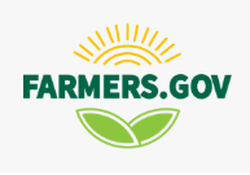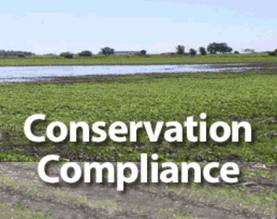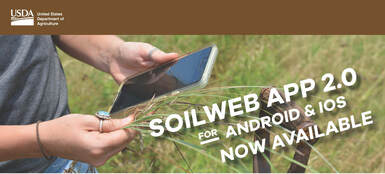| Franklin County Conservation District |
|
Helping People Help the Land in partnership with USDA - Natural Resources Conservation Service
Change happens..... when it does producers need to update USDA
Anytime you have a change to your farm operation please take the time to notify Farm Service Agency and Natural Resources Conservation Service and the USDA office.
Examples of changes USDA needs to know about include:
> Land ownership- did you buy or sell land?
> Tenant/operator change- is someone new operating your land, or are you operating for someone new? Did shares change?
> Ownership Name- did you create a trust, did a member of a trust pass away, have you formed an LLC or Inc.?
> Did you open a new bank account for the farm/operation?
> Did you move, get a new phone number, drop your land line, or change your email address?
> Did you, or do you, plan to add acres to your operation? An HEL determination is needed, before planting a commodity crop in order to remain eligible for Farm Bill Programs, on any "newly created" tillable acres.
It is always better to notify the office of a change as soon as it happens instead of after a problem with payment or program sign up occurs because records were not updated. If you have questions, or if you need to report a change, call the office at 242-3260 Ext 2 for FSA, Ext 3 for NRCS/Conservation District.
Examples of changes USDA needs to know about include:
> Land ownership- did you buy or sell land?
> Tenant/operator change- is someone new operating your land, or are you operating for someone new? Did shares change?
> Ownership Name- did you create a trust, did a member of a trust pass away, have you formed an LLC or Inc.?
> Did you open a new bank account for the farm/operation?
> Did you move, get a new phone number, drop your land line, or change your email address?
> Did you, or do you, plan to add acres to your operation? An HEL determination is needed, before planting a commodity crop in order to remain eligible for Farm Bill Programs, on any "newly created" tillable acres.
It is always better to notify the office of a change as soon as it happens instead of after a problem with payment or program sign up occurs because records were not updated. If you have questions, or if you need to report a change, call the office at 242-3260 Ext 2 for FSA, Ext 3 for NRCS/Conservation District.

USDA’s new online resource built around the needs of the people who grow our food, fuel, and fiber. Farmers.gov provides farmers, ranchers, private foresters and agricultural producers with online self-service applications, educational materials, engagement opportunities and business tools to increase efficiency and productivity while preserving and fostering long-held traditional relationships between local USDA offices and producers.
Is EQIP the right program for you?
“EQIP provides Kansas agricultural producers a wide range of opportunities to improve the quality of natural resources on their land,” State Conservationist Karen Woodrich said. EQIP (Environmental Quality Incentives Program) is a voluntary conservation program available for agricultural producers. Through EQIP, NRCS will provide financial and technical assistance to install conservation practices that reduce soil erosion and sedimentation, improve water and air quality, and create wildlife habitat.
NRCS accepts applications for all of its programs on a continuous basis, producers interested in EQIP should submit a signed application to the local NRCS field office. Franklin County residents are encouraged to come in and visit with NRCS about how EQIP might benefit their operation.
EQIP also helps address the unique circumstances of socially disadvantaged, veteran, limited resource, and beginning farmers and ranchers, who have natural resource concerns that need to be addressed on their land," said Banks. Qualifying Kansas producers compete separately and receive higher payment rates. EQIP offers some of the following initiatives:
High Tunnel System Initiative: NRCS will help producers implement high tunnels that extend growing seasons for high value crops in an environmentally safe manner.
Monarch Butterfly Habitat Development Project: NRCS will assist landowners to establish milkweed and other plants critical to the iconic Monarch Butterfly.
On-Farm Energy Initiative: Producers work with an NRCS-approved Technical Service Provider to develop Agricultural Energy Management Plans or farm energy audits that assess energy consumption on an agricultural operation.
For more information visit the Kansas NRCS Web site www.ks.nrcs.usda.gov/programs or your local U.S. Department of Agriculture (USDA) Service Center. Follow us on Twitter @NRCS_Kansas. USDA is an equal opportunity provider, employer, and lender.
NRCS accepts applications for all of its programs on a continuous basis, producers interested in EQIP should submit a signed application to the local NRCS field office. Franklin County residents are encouraged to come in and visit with NRCS about how EQIP might benefit their operation.
EQIP also helps address the unique circumstances of socially disadvantaged, veteran, limited resource, and beginning farmers and ranchers, who have natural resource concerns that need to be addressed on their land," said Banks. Qualifying Kansas producers compete separately and receive higher payment rates. EQIP offers some of the following initiatives:
High Tunnel System Initiative: NRCS will help producers implement high tunnels that extend growing seasons for high value crops in an environmentally safe manner.
Monarch Butterfly Habitat Development Project: NRCS will assist landowners to establish milkweed and other plants critical to the iconic Monarch Butterfly.
On-Farm Energy Initiative: Producers work with an NRCS-approved Technical Service Provider to develop Agricultural Energy Management Plans or farm energy audits that assess energy consumption on an agricultural operation.
For more information visit the Kansas NRCS Web site www.ks.nrcs.usda.gov/programs or your local U.S. Department of Agriculture (USDA) Service Center. Follow us on Twitter @NRCS_Kansas. USDA is an equal opportunity provider, employer, and lender.
EQIP application cut off date is November 17, 2023
Customers should apply before the November 17 date for any conservation work to be complete in fall 2024 and into 2025. Even if funding is approved in spring 2024, more than likely construction will not be approved to begin until fall 2024 or later, due to cultural resource review requirements in accordance with national policy. Contact NRCS at 785-242-3260 x 3 with any questions or to schedule a time to come in and apply.

Did you know.... the conservation district assists local agriculture producers with USDA conservation compliance? Did you also know, conservation compliance has direct correlation with crop insurance benefits?
Conservation district staff provides technical assistance to producers when they inquire about newly purchased/rented land they intend to farm, enroll in federal farm programs and carry crop insurance on. Conservation district staff completes soils inventory reports on land to allow NRCS to make official HEL/NHEL determinations which is the first step of the conservation compliance process. Conservation district staff mails official determination notices to landowners and operators. Conservation district staff then assists by gathering information on the conservation system the producer will implement on the land. This is needed to develop a plan to allow the producer to stay within soil loss tolerance guidelines. Details of the conservation system, including tillage methods and crop rotation are documented in the conservation plan. Once a NRCS certified planner develops the required conservation plan documents conservation district staff notifies the producer of the need to review and sign the documents. The conservation district board of supervisors review all compliance plans at their monthly board meetings and when appropriate they take official actions for approval of the plans. Conservation district staff mails officially approved compliance plans to producers as well as providing documentation to Farm Service Agency to show the conservation compliance process is being followed. Without full time (fully funded) conservation district staff to assist with this conservation compliance process local producers would be faced with significant delays in obtaining official HEL determinations and approved compliance plans. The conservation district is needed to help local providers remain in conservation compliance for farm program payments and crop insurance benefits. Similar assistance is provided with the wetland determination and compliance process. Photo credit USDA-NRCS
Conservation district staff provides technical assistance to producers when they inquire about newly purchased/rented land they intend to farm, enroll in federal farm programs and carry crop insurance on. Conservation district staff completes soils inventory reports on land to allow NRCS to make official HEL/NHEL determinations which is the first step of the conservation compliance process. Conservation district staff mails official determination notices to landowners and operators. Conservation district staff then assists by gathering information on the conservation system the producer will implement on the land. This is needed to develop a plan to allow the producer to stay within soil loss tolerance guidelines. Details of the conservation system, including tillage methods and crop rotation are documented in the conservation plan. Once a NRCS certified planner develops the required conservation plan documents conservation district staff notifies the producer of the need to review and sign the documents. The conservation district board of supervisors review all compliance plans at their monthly board meetings and when appropriate they take official actions for approval of the plans. Conservation district staff mails officially approved compliance plans to producers as well as providing documentation to Farm Service Agency to show the conservation compliance process is being followed. Without full time (fully funded) conservation district staff to assist with this conservation compliance process local producers would be faced with significant delays in obtaining official HEL determinations and approved compliance plans. The conservation district is needed to help local providers remain in conservation compliance for farm program payments and crop insurance benefits. Similar assistance is provided with the wetland determination and compliance process. Photo credit USDA-NRCS
Customers can now access Soil Survey information online. Local USDA - NRCS offices no longer have the old printed soil survey books available since soils inventory is on the Web Soil Survey Site. Click on the Web Soil Survey image above to connect to the page to begin your soil survey research.

Soil is a living ecosystem. Healthy soil gives us clean air and water, bountiful crops and forests, productive grazing lands, diverse wildlife, and beautiful landscapes. Learn more about new soil health and soil quality programs by visiting the USDA NRCS website http://www.nrcs.usda.gov/wps/portal/nrcs/main/national/soils/health/
Contact local NRCS Staff:
Ottawa USDA Service Center 785-242-3260 ext 3
District Conservationist: VACANT
Conservation Technician: VACANT
Soil Conservationist: VACANT
Natural Resource Specialist: Samantha (Sam) Whitten
Supervisory District Conservationist: Jeff Mann (covering Franklin, Douglas, Shawnee, Miami, Johnson and Wyandotte Counties)
Ottawa USDA Service Center 785-242-3260 ext 3
District Conservationist: VACANT
Conservation Technician: VACANT
Soil Conservationist: VACANT
Natural Resource Specialist: Samantha (Sam) Whitten
Supervisory District Conservationist: Jeff Mann (covering Franklin, Douglas, Shawnee, Miami, Johnson and Wyandotte Counties)
The U.S. Department of Agriculture (USDA) prohibits discrimination against its customers, employees, and applicants for employment on the bases of race, color, national origin, age, disability, sex, gender identity, religion, reprisal, and where applicable, political beliefs, marital status, familial or parental status, sexual orientation, or all or part of an individual's income is derived from any public assistance program, or protected genetic information in employment or in any program or activity conducted or funded by the Department. (Not all prohibited bases will apply to all programs and/or employment activities.)
|
All programs and services of the Franklin County Conservation District are available without regard
to race, color, religion, sex, national origin, marital status, sexual orientation, age or handicap. |
Proudly powered by Weebly
|

